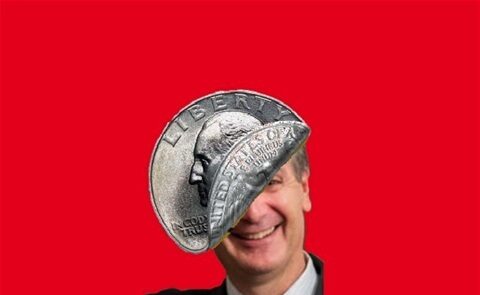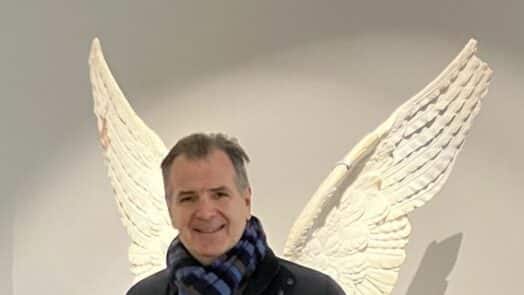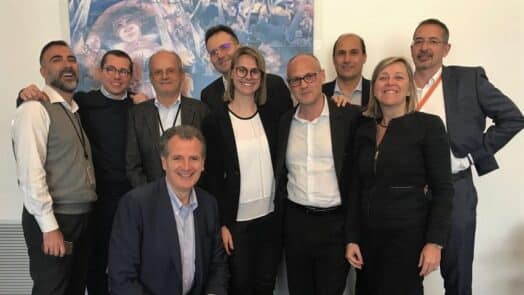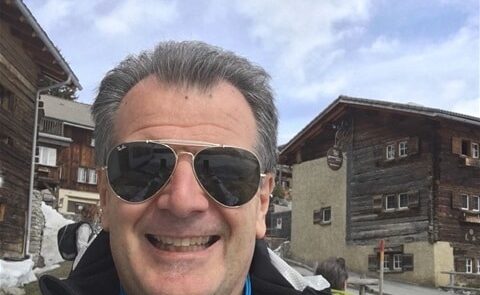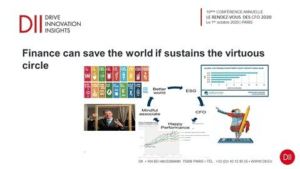Eudaimonia it’s 25 years in Novartis
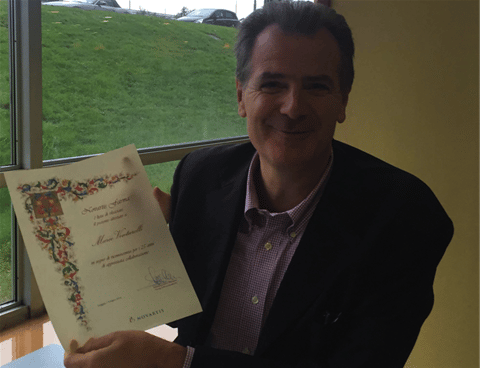
“A dwarf on a giant’s shoulders sees the furthest of the two”
During a simple and touching ceremony, my current manager and two colleagues handed me a recognition certificate for the 25 years I spent in the same company, Novartis.This anniversary made me reflect on the reason why certain individuals stay loyal, working mostly for one company, while others build a career jumping from one company to another.
A recent study, published by Elite Network (partially adjusted and shortened below by me) lists the good reasons why a worker would change job:
1. Career advancement. This is the primary reason most people change jobs. They either want greater opportunity for advancement and their company can’t provide it, or an absolutely irresistible opportunity comes along out of the blue, and they can’t pass it up.
2. Work environment. This can mean different things to different people. It may mean less stressful conditions due to deadlines or pressure. It could also mean more manageable hours, fewer weekends or flex time. Or it could simply mean a friendlier atmosphere.
3. Challenge. This typically means greater mental or technical stimulation. People like to feel that they are learning new skills. This can provide them with greater market value or it can simply be more intellectually satisfying. Either way, this is very important to most people to maintain happiness in the job.
To celebrate my anniversary, I then decided to write my first article on LinkedIn and I made an imaginary interview (based on info public on the WEB) to two leaders very loyal to their company, where they reached the CEO position: Jeff Immelt, GE CEO and Ginni Rometty, IBM CEO.Both have been with their company for more than 30 years, much longer than me, so I am sure they can help us understand why people stay long in the same organization and do not see a good reason to leave.
Marco: So, Ginni and Jeff, have you ever consider leaving your company in all these years?
Jeff: GE has always offered me internal growth opportunities: I joined in 1982 as an internal marketing consultant, and then from 1983 to1989 I was district sales manager in Plastics. I led, as Vice President Consumer services in Appliances from 89 to 92. Then I became Vice President and general manager of Plastics. GE offered me the chance to completely diversify my competencies, in 1997, as CEO of Medical Systems. Then, in 2001, I became GE CEO. With all these opportunities, there wasn’t much time to search for something more dynamic and interesting. No reason to leave!
Ginni: As I answered already to Forbes, in my 35-year career at IBM I led spending programs for data-analysis software and skills, cloud computing and IBM’s Watson artificial intelligence technology. I joined IBM in 1981as a systems engineer in its Detroit office. Then I joined IBM’s Consulting Group in 1991. In 2002 I championed the purchase of the big business consulting firm, PricewaterhouseCoopers Consulting, for $3.5 billion.It accelerated my career, and I became Senior Vice President and group executive for sales, marketing and strategy in 2009. Since my early days with Big Blue, I envisioned IBM’s growth strategy by getting the company into the cloud computing and analytics businesses. I was also at the helm of readying Watson, the Jeopardy! playing computer, for commercial use. I had so many achievements in my career that even an offer from Steve Jobs would have made me change job!
Marco: A recent consultant analysis suggests that people change job to look for a friendlier atmosphere or less stressful environment. What was your experience in that sense?
Jeff: Stress keeps you alive and nurtures your achievements. As you see from Wikipedia, I took over the role on September 7, 2001, just four days before the terrorist attacks on the United States, which killed two employees and cost GE’s insurance business $600 million, as well as having a direct effect on the company’s Aircraft Engines sector. Then I was pressed to defend GE’s business model and the quality of its financial reports as the economy reeled from the Enron crisis. In 2008-09 I shepherded GE through the United States financial crisis. As legendary UCLA basketball coach Jack Wooden said, “Things turn out best for those who make the best of how things turn out.” GE required all my attention and interest with a lot of stamina and challenges: where else I would have found a better job?
Ginni: Growth and comfort never coexist, I told to the Northwestern 2015 graduates, in my early career as an executive I always took risk: when presented with a great opportunity to advance in my career, I questioned whether I was ready. The evening after having received the proposal for advancement, my husband of 35 years now sat and listened patiently to my story. He would then say only one thing: ‘do you think a man would have answered that way? I know you. In six months, you will be telling me how you are ready for the next challenge. I told the graduates to close their eyes and ask themselves when they have learned the most. Probably when you have felt at risk, so when you start to feel anxious, that’s actually a good sign. You’re learning! Changing for the sake of a less exciting job was not in my plans.
Marco: Need for another challenge is quoted as the third reason for people to change job. How you were able to constantly find another challenge, despite your long tenure in the same company?
Jeff: Marco, have you ever heard of “Neutron Jack”, my predecessor? See Investopedia definition: “To attract the right personnel, Welch instituted a strategy that earned him the moniker “Neutron Jack”. He had GE cut all businesses in which the company could not dominate the market in first or second positions. Next, he had managers fire the bottom 10% of GE employees, while he fired the bottom 10% of management. Welch’s housecleaning cleared away layers of bureaucracy that had built up at the organization and made way for a quicker flow of ideas.” It was a challenge everyday for me to show my capabilities to such a great leader. I learnt a lot and I was as a dwarf on a giant’s shoulders but this helped me to see furthest down the road and avoid being a passive inheritor of “the house that Jack built.” But I took a different path, differentiating from Jack in both substance and style. On the one hand, I eliminated or reduced GE’s involvement in a number of businesses from the Jack era, with moves in the Plastics, Appliance and GE Capital businesses. On the other hand, I seized the growing international nature of commerce to expand GE’s operations overseas.” Standing on his shoulders has helped me grow further. This was my everyday challenge that made me appreciate my job.
Ginni: I owe a lot to Sam (Palmisano – former IBM CEO). He was always telling me: “ A good CEO should never fall in love with himself. I was maybe the longest-sitting CEO of IBM other than Watson, but, nonetheless, I’m not the IBM company. A lot of people before me built a great enterprise. I was fortunate enough to represent it for nine to ten years, but I’m a temporal steward of an iconic organization. If you think you are the success, then you’ll make mistakes because you won’t encourage and motivate the team to go win every day. One of the most detrimental things any leader can do is put themselves above the organization. Yet you see it all the time. If you can leave the company better than when you found it, to me that was the ultimate measure of success”. The big challenge as first time woman as IBM CEO is that as Sam said: “Ginni got it because she deserved it… It’s got zero to do with progressive social policies”. To get the top job as a woman in IBM was really challenging but I agree with Jeff: I was humble for many years to stand as a dwarf on a giant’s shoulders and from there see the potential IBM has to develop Watson, cloud and professional services.
Jeff – Ginni: Marco, it is now clear to you why we stayed so many years in the same company, there we found challenges to be solved, a stressful but learning environment and a place where our capabilities were rewarded. Both had the possibility to learn from the leaders of the past in our organizations and leverage their experience to see the future in a sharper and cleaner way. What made you stay for 25 years in the same company?
Marco: I am so glad that you quoted Isaac Newton’s sentence to Robert Hooke in 1676: “A dwarf on a giant’s shoulders sees the furthest of the two” and I think he meant to say that when a man’s low intelligence, like me, is combined with one’s of greater intelligence, the dwarf (less smart one) will have a greater advantage than the giant (smarter one). Novartis gave me the opportunity to work with intelligent, smart, prepared and determined colleagues and bosses. Every of my almost 5000 working days in the company was full of learning, challenge and solutions to be found. I took the advantage to absorb from many colleagues a lot of their knowledge, behavior, empathy, competencies, skills, and that made of me a better person, a better leader. Those leaders helped me to grow professionally in Finance, General Management, Change management and Strategy. There was no reason for me to change company, as 8 career advancements and opportunities became real; no reason to change, as the work environment was friendly, rich of learning and positive stamina; no reason to change, as the challenges were always occasions to raise the bar, start from achievements and grow further.
If a genius like Newton was ready to admit how much advantage we can get, if we are ready to build on the past, if we consider those that before us were part of building the organization where we work, then I am proud that I spent a lot of time to learn from my past and current managers.
I see the furthest, I enjoy my job, I enjoy the game. Thank you to all my managers during these years: you let me see always the way ahead and made my 25 years a fantastic journey.
This imaginative interview published on LinkedIn aims to publicly thank you.
Milan 31st, December 2016
